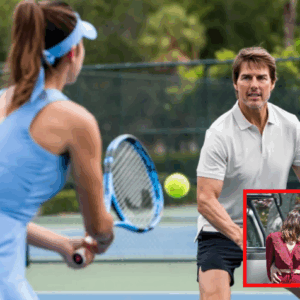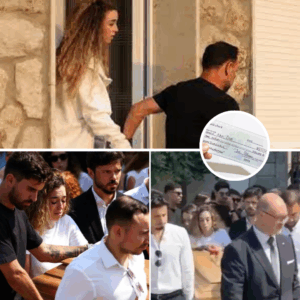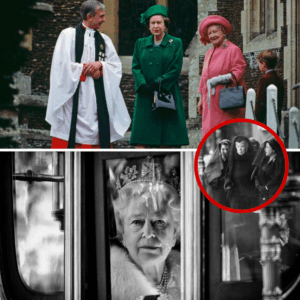On August 3, 2025, the Dragão Stadium in Porto, Portugal, stood still, its usual roar replaced by a profound silence that gripped thousands of fans. At the heart of this emotional scene was Rute Cardoso, the widow of Liverpool FC star Diogo Jota, standing in a private box with grief etched deeply on her face. She was there to honor her late husband and his brother, André Silva, both tragically killed in a car accident exactly one month earlier. The tribute, part of a friendly match between FC Porto and Atlético Madrid, was a moment of raw sorrow and unity, as the crowd’s applause mingled with tears to commemorate two lives cut short. This poignant event, witnessed by players, families, and supporters, underscored the enduring legacy of Jota and Silva, two sons of Porto whose loss has left an indelible mark on the football world.
Diogo Jota, born December 4, 1996, in Massarelos, Portugal, was a footballing prodigy whose journey from local club Gondomar SC to global stardom captivated millions. After shining at Paços de Ferreira, Jota’s talent led him to Atlético Madrid in 2016, followed by a loan to FC Porto that same year, where he scored eight goals in 27 appearances during the 2016-17 season. His move to Wolverhampton Wanderers in 2017 saw him blossom into a Premier League star, netting 44 goals in 131 games. In 2020, Liverpool signed him for £41 million, and Jota repaid their faith with 65 goals in 182 appearances, contributing to the 2022 FA Cup, two Carabao Cups, and the 2025 Premier League title. Off the pitch, Jota was a devoted partner to Rute Cardoso, his high school sweetheart, whom he married on June 22, 2025, just 11 days before his death. The couple had three young children—Dinis, Duarte, and a daughter born in 2024—making his loss even more devastating.
André Silva, Jota’s younger brother, born in 1999, was also a footballer, carving his own path in Portugal’s second division with Penafiel. A product of FC Porto’s youth academy, André was known for his tenacity and promise, often cited by Jota as his favorite player. Beyond football, André was an entrepreneur, launching a tech startup focused on sports analytics, which had begun gaining traction. The brothers shared a close bond, often seen together at family events or driving Jota’s prized green Lamborghini Huracán, a symbol of their shared passion for cars. Their deaths on July 3, 2025, in a fiery crash on Spain’s A-52 highway near Zamora, shocked the world, leaving fans, teammates, and loved ones grappling with unimaginable grief.
The accident occurred at 12:30 a.m. as Jota and André traveled from a family holiday in Portugal to Santander, intending to catch a ferry to England for Liverpool’s pre-season training. A tire blowout caused their Lamborghini to veer off the road, strike a barrier, and erupt in flames. Initial reports attributed the crash to excessive speed—estimated at 180 km/h in a 120 km/h zone—and a possible tire defect. The tragedy, coming so soon after Jota’s wedding, devastated Rute, their parents Joaquim and Isabel Silva, and the football community. Tributes flooded in, from Cristiano Ronaldo’s heartfelt Instagram post to Liverpool’s decision to retire Jota’s number 20 jersey. A joint funeral on July 5 in Gondomar drew thousands, with Liverpool players Virgil van Dijk and Andy Robertson carrying floral tributes shaped like the brothers’ shirt numbers—20 for Jota, 30 for André.
The tribute at Dragão Stadium was meticulously planned by FC Porto, a club both brothers had ties to, to mark the one-month anniversary of their deaths. The match against Atlético Madrid, clubs Jota briefly represented, was chosen for its symbolic weight. Before kickoff, the stadium’s giant screens played a montage of Jota’s dazzling goals and André’s youth academy highlights, set to a haunting rendition of You’ll Never Walk Alone, Liverpool’s anthem. Players from both teams stood arm in arm on the pitch, wearing black armbands, as a minute’s silence enveloped the arena. The crowd, numbering over 40,000, held their breath, many clutching blue-and-white Porto scarves emblazoned with the brothers’ names.
Rute Cardoso, dressed in black, stood in a private box alongside Jota and André’s parents. Her face, captured by stadium cameras, was a portrait of sorrow—eyes red, lips trembling, yet resolute. She held a framed photo of Jota celebrating a goal, his infectious smile a stark contrast to the moment’s gravity. Beside her, Isabel Silva wept silently, clutching a rosary, while Joaquim stared at the pitch, his stoic facade masking deep pain. The family’s presence amplified the tribute’s weight; Rute, who had avoided public appearances since the funeral, chose this moment to honor her husband’s legacy, knowing Porto was where he felt most at home.
As the silence ended, the crowd erupted in applause, a thunderous outpouring that lasted over two minutes. Fans unfurled banners reading “Forever Our Number 20” and “André, Gondomar’s Pride.” At the 20th minute, marking Jota’s Liverpool shirt number, the applause resumed, with players pausing to join in, some visibly emotional. Porto’s president, André Villas-Boas, a pallbearer at the funeral, stood among the fans, later describing the moment as “a city’s heart beating for its sons.” The screens displayed a message from Rute: “Diogo and André lived for football and family. Thank you for keeping their light alive.” Her words, read aloud by the announcer, brought tears to thousands, many of whom had followed Jota’s career from his Porto days.
The tribute extended beyond the stadium. FC Porto announced the creation of the Jota-Silva Foundation, funded by match proceeds, to support youth football in Gondomar and provide scholarships for underprivileged athletes, reflecting André’s community work. Rute, a key figure in its planning, vowed to ensure her children grow up knowing their father’s and uncle’s impact. Liverpool, represented by manager Arne Slot via video, pledged to match donations, while Atlético Madrid’s players laid a wreath at halftime, symbolizing Jota’s brief but memorable stint with them.
The emotional weight of Rute’s presence resonated globally. Social media overflowed with posts, fans sharing clips of the tribute under hashtags like #JotaForever and #SilvaLegacy. “Seeing Rute stand there, so strong yet so broken, was like watching Diana after tragedy,” one fan wrote, drawing parallels to Princess Diana’s grace under pressure. Others praised Rute’s courage, noting her role in organizing the event despite her grief. A viral video captured a young Porto fan, no older than 10, lighting a candle outside the stadium, saying, “Jota made me love football. I’ll never forget him.”
The moment also highlighted the fragility of life for athletes in the spotlight. Jota’s death, at the peak of his career, echoed other sporting tragedies, reminding fans of the human behind the hero. Rute’s stoic presence, like a beacon of resilience, mirrored the strength she showed at the funeral, where she helped carry Jota’s coffin. Her decision to attend the tribute, despite her children’s absence to shield them from pain, spoke to her commitment to preserving Jota’s memory for their sake.
As the match ended—a 2-1 Porto victory—the stadium remained full, fans lingering to sing Sweet Caroline, a song Jota loved. Rute, escorted to the pitch, placed a bouquet of white roses at the center circle, a gesture that drew another wave of applause. She paused, looking skyward, as if speaking to Jota and André. The crowd’s silence returned, a sacred pause that felt like a collective embrace. For Porto, for Portugal, and for football, it was a moment of catharsis, a chance to mourn and celebrate two lives intertwined with the beautiful game.
The legacy of Diogo Jota and André Silva endures through this tribute. The Jota-Silva Foundation will nurture future talents, while Dragão Stadium plans a permanent memorial—a statue of the brothers, ball at their feet, smiling. Rute’s courage, etched in that silent moment, has become a symbol of love’s endurance, reminding the world that even in grief, unity and memory can shine. As the crowd dispersed, their applause lingered, a testament to two brothers who played with heart and left a mark that time cannot erase.





